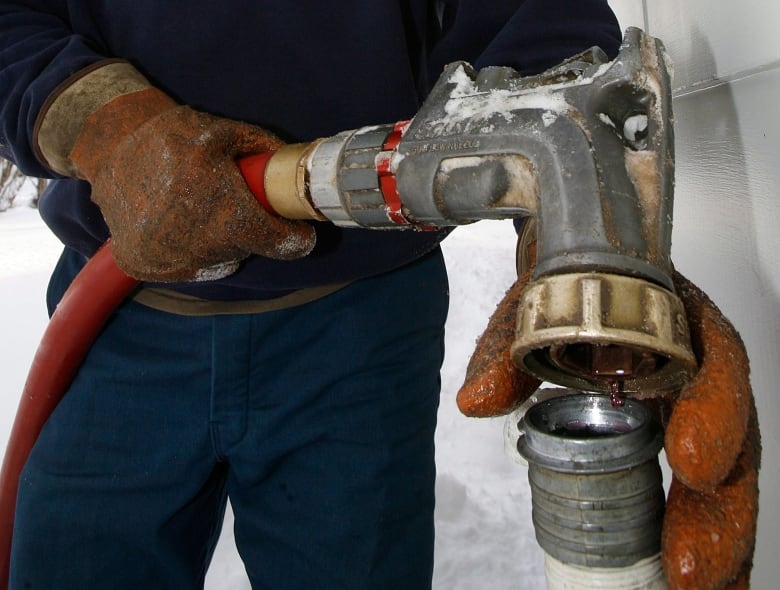Inflation on P.E.I. is higher than it has been in decades — and it’s also been the highest in the country for months.
The latest report from Statistics Canada, released last week for the month of March, listed annual inflation for P.E.I. at 8.9 per cent, more than two points higher than the national average of 6.7 per cent.
Rising inflation first came to Islanders’ attention in June of last year. At the time, inflation was high compared to the spring of 2020 when the pandemic was making a general mess of the economy. P.E.I. had been experiencing deflation — that is, inflation was actually negative.
Economists surmised this was more a correction than a persistent problem, but it has persisted. The Russian invasion of Ukraine, and the spike in world oil prices that followed, have only made it worse.

Speaking in the legislature last week, Premier Dennis King put much of the blame at the feet of oil prices.
“In Prince Edward Island that’s largely driven by the cost of fuel and gasoline,” said King.
“Being a province that has to import and export essentially everything we do on wheels, I think that’s why we’re seeing our increase higher than others.”
Finance Minister Darlene Compton agreed P.E.I. inflation was being driven by world events.
“We are working to be there for Islanders. We’ve frozen the fees, a number of fees that Islanders would pay. We’ll continue to look at what we can do. We have no control over the inflation of the country,” said Compton.
“We know that there are going to be some real tough economic times ahead, and we want to be there as much as we can, but we cannot make everyone whole, that’s for sure.”
The impact of fuel oil
The rising cost of fuel oil has had a huge impact on P.E.I.
The consumer price index for fuel oil in particular on the Island is up 83 per cent, compared to 61 per cent nationally — putting P.E.I. 36 per cent higher than the national average.
Additionally, Islanders rely more on fuel than the rest of the country.

But the premier’s contention that increased transportation costs are driving up costs for items shipped to the Island isn’t borne out by the numbers.
Take groceries for example. Prices are up 8.6 per cent, which many Islanders are feeling as they put dinner on the table, but the national index is virtually the same at 8.7 per cent.

Grocery prices are contributing to inflation on the Island, but no more than they are in the rest of Canada.
The situation is similar for clothing and footwear, which aren’t a significant factor in inflation currently.
Another problem area
But there is one category where there is a big difference between P.E.I. and the national average: rent.
The rental index is up 15.3 per cent on P.E.I. — compared to just 4.2 per cent for Canada as a whole. Over the past three years, the index on the Island is up a total of 27 per cent, and just 7.5 per cent for Canada.
P.E.I. is rent-controlled, which means the province can, and to some degree does, control rent on the Island.

The provincial government has been considering revamping rent controls since 2019, when it introduced a draft for a new Residential Tenancy Act. For years, housing advocates have called for a registry to help keep landlords from raising rents illegally.
When CBC News spoke to Housing Minister Brad Trivers last year, he acknowledged rent increases were a problem and said he wanted a government rent registry in place by January of this year. That didn’t happen. Most recently Trivers has said he’s not sure a rent registry will be necessary at all.
The government was also expected to table the new Residential Tenancy Act this spring, but hasn’t done so yet.
In an email to CBC News on Friday, the Finance Department attributed rent increases to issues that are out of its control.
“The rise in the rented accommodations sector can be attributed to several things: significant increase in unit construction, global supply chain shortages and challenges, commodity prices booming, labour shortages in construction, and rising rates for financing,” the email said.
“It would be incorrect to say that the province can control the rising rate of inflation among rental accommodations as the industry continues to adapt and deal with global events and global supply chain issues.”
New buildings are expensive
UPEI economist George Jia agrees the cost of building is a significant factor.
The cost to build has increased, the province has seen an increase in new builds, and landlords are free to set the rent on those new units wherever they want.
But Jia said the increase in average rent suggest the government’s affordable housing strategy is not working.

“There is a huge demand for housing all across the spectrum, from affordable housing all the way up to almost luxury,” said Jia.
“From the point [of view] of the private sector, obviously the higher end of the market is more profitable.”
The evidence of rapidly increasing rents comes not just from Statistics Canada, but also from data released earlier this year by the Canada Mortgage and Housing Corporation.
Jia doesn’t put much stock in a new Residential Tenancy Act solving the problem — at the end of the day, he sees it as a supply issue.
Current programs at the federal and provincial level aren’t building affordable housing quickly enough, he said, and municipal governments aren’t helping by denying permits to developers looking to build high-density residential when neighbours complain.
“We understand we need new housing, we understand that people have this supply problem, but then nobody wants to build it around their own home,” said Jia.
The current government plan to prompt private developers to build affordable housing doesn’t seem to be working, so he suggests a new approach.
“At the end of the day, the government really needs to invest in that themselves, rather than completely rely on the private sector to build affordable housing,” he said.
He says this is the best way to ensure not only that P.E.I. gets the affordable housing it needs now, but also to ensure the province maintains a stock of affordable housing in the future.





















Discussion about this post